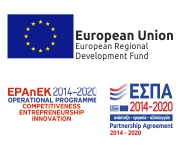Table of Contents
As a recent Evanta survey showed, for the fourth consecutive year, the top priority of CIOs worldwide is cybersecurity and risk management (Evanta, 2025). This alone shows that the market has shifted from “how fast” and “how cheap” to “how secure and reliable” the software in use are.
Trust as a Strategic Advantage
Trust in software has become the new competitive advantage. It is no coincidence that, according to Gartner, 67% of CIOs rank cost optimization as a priority, but always in combination with reliability and data protection (Splunk/Gartner, 2025).
Simple cost savings are no longer enough. As Economic Times (CIO) notes, technology leaders increasingly choose solutions that create long-term value rather than short-lived, low-cost options (Economic Times CIO, 2025). And this value is built on transparency, security, and consistent support.

Transparency: The Foundation of Trust
Transparency is the first step in building trust. It is not only about whether the code is open source. It means clear answers to questions such as:
- How does the software manage data?
- How is personal information protected?
- What changes does each new release bring?
- How is performance measured and reported?
In the field of mobile messaging, solutions such as Cytech’s mCore cannot rely on performance alone. Partners and customers expect a platform that provides them with a clear picture of SLAs, delivery management, data protection, and compliance with regulatory frameworks.
Documentation: The Silent but Critical Factor
One of the most underestimated elements of reliability is documentation. It is not just a manual; it is the footprint of professionalism.
According to the Haile Solutions vendor selection guide, the main criteria are reliability, cost, and compatibility (Haile Solutions, 2025). Documentation reinforces all these aspects: it makes the code understandable, reduces errors, and facilitates integration by third-party partners.
Without documentation, software becomes a “black box.” With it, it becomes a collaborative platform that can evolve and be supported by the entire ecosystem.
Ethics: From Theory to Practice
Software development is not only a technical act; it is also an ethical responsibility. In the era of cloud computing and artificial intelligence, every decision about how data is collected and stored carries consequences.
An academic study shows that issues of security and privacy can increase the likelihood of technology non-adoption by up to 26 times (Arxiv, 2017). This means that the absence of ethics and transparency is not just a “moral issue”; it is also a barrier to commercial success.
Trust and Business Value
Trust has a direct impact on business outcomes. It is no coincidence that, according to PwC, companies that invest in transparency and data protection enjoy higher levels of customer trust and loyalty (PwC Global Digital Trust Insights, 2025).
A customer who trusts a solution will not abandon it easily. Even if there is a cheaper alternative, trust acts as a shield against competition.
Table 1: What Businesses Gain from Trust in Software
| Trust Factor | Benefits for the User/Customer | Benefits for the Business |
|---|---|---|
| Transparency | Confidence in usage and data | Fewer complaints, stronger brand |
| Security & Compliance | Protection of personal information | Lower risks and fewer penalties |
| Reliability / Stability | Seamless operation | Greater productivity |
| Documentation & Support | Easier understanding and usability | Faster integration, reduced costs |
From Code to Relationships
Trust is not built only through technical practices. It is a holistic approach that includes:
- Clean code that minimizes errors.
- Transparent policies that demonstrate respect for the customer.
- Continuous support that reassures long-term viability.
- Ethical practices that safeguard the end user.
At Cytech, this philosophy is embedded in every project. For us, a project is not just software. It is a relationship of trust that grows and evolves over time.
Conclusion
In a world moving at dizzying speeds, true value does not lie in lines of code but in lines of trust. CIOs and businesses alike show that the priorities for the future are clear: cybersecurity, transparency, reliability, and value creation.
Cytech has built its journey on these principles. Because at the end of the day, software is not just technology. It is the foundation on which relationships of trust are built — and these matter far more than any single line of code.

